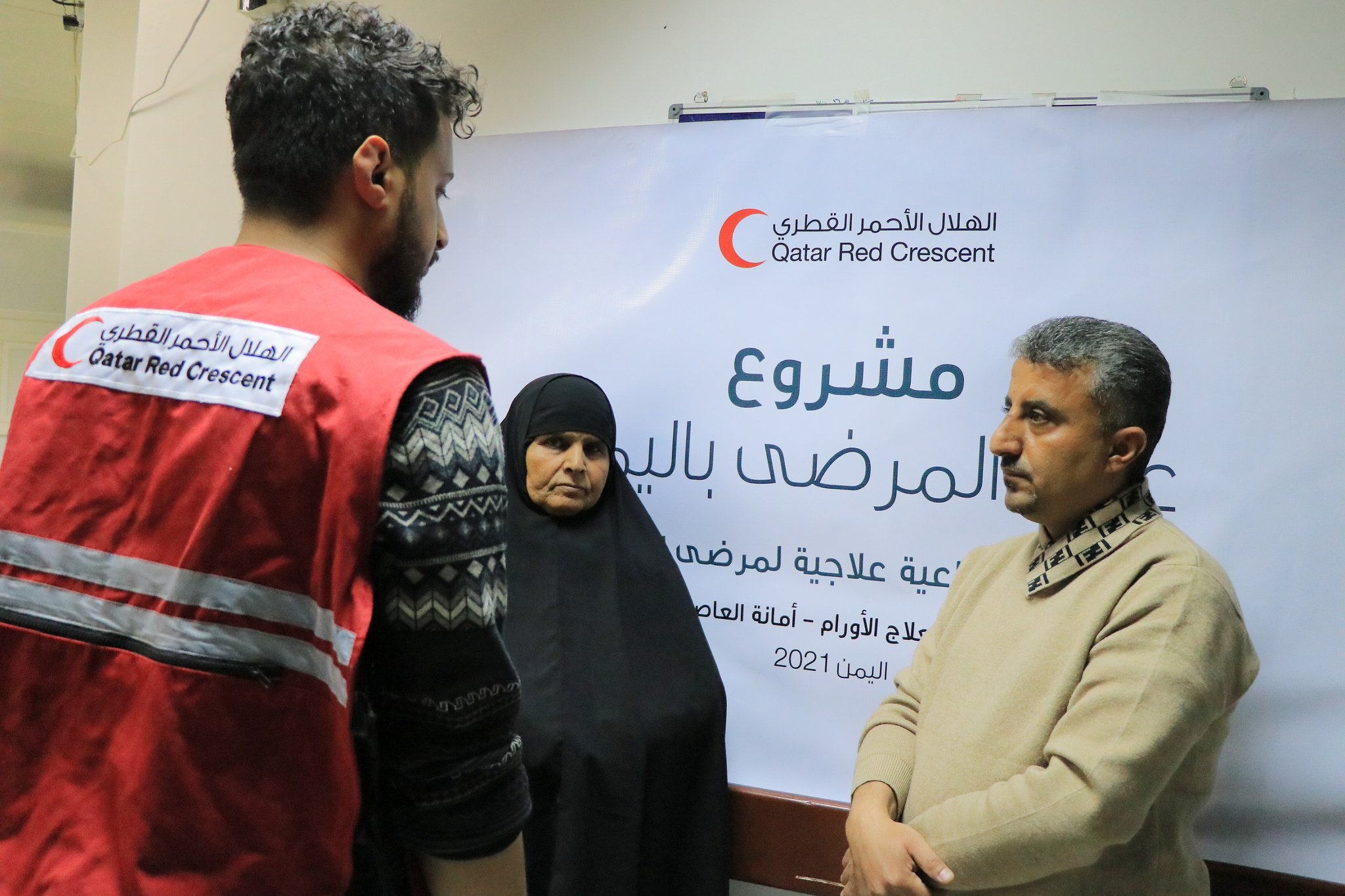The new project will help thousands of people in need as the country continues to suffer from the collapse of its healthcare system.
Qatar Red Crescent Society (QRCS) has expanded its efforts in Yemen by launching a brand new medical project to help thousands of patients receive adequate healthcare in the war-torn nation.
The new initiative will help over 1,043 people in need by providing radiotherapy sessions for those with cancer, medicines and medical supplies for patients with burn injuries, as well as dialysis and kidney transplant post-procedure medicines for others.
The $424,768 project was initiated at the National Oncology Center in Sana’a, with a six-month plan to hold 4,074 radiotherapy sessions for 272 cancer patients, the charity said in a statement.
The centre has already started receiving patients who are in dire need of radiotherapy, the chairman of the centre, Dr. Abdullah Thawabeh stated.
“I would like to thank QRCS for addressing the needs of Yemeni people, in light of the current circumstances in our country, we expect a lot from QRCS. Certainly, the cancer patients will receive a high-quality treatment,” he said.
In addition, during the inauguration ceremony at the Disability Welfare and Rehabilitation Fund in Sana’a, 260 patients with disabling burns received compression garments and medicines to alleviate their suffering.
WFP, Qatar partner up to provide aid to millions in war-torn Yemen
Director of programmes and projects at the fund, Hisham Al Qudsi, said the project serves an essential need in which it helps the mental health of thousands of patients by removing deformities or improving the appearance of their bodies.
This would not have been possible without QRCS’ support, given the cost of the treatment. He thanked the Gulf nation for alleviating the pain and supporting the country’s health sector and services for people with disability in Yemen.
Ongoing conflict
Yemen has been marred in conflict since 2014 when Houthi rebels overran all government institutions in Sanaa and gained control of the city, forcing the internationally-recognised government to flee to Aden.
The conflict was exacerbated in 2015 after a Saudi Arabia-led military coalition intervened to reinstate the government of Abedrabbo Mansour Hadi. Years of bombardment and violence has damaged much of the country’s infrastructure and killed tens of thousands of civilians.
Both the Houthi rebels and the Saudi-led coalition have been criticised by the international community for engaging in war-crimes throughout the conflict.
Alongside the ongoing conflict, 24.1 million people, almost 80% of Yemen’s population, are in need of humanitarian aid and protection, making it the largest humanitarian crisis in the world. Over three million people have been displaced from their homes since 2015.
The collapse of healthcare, water, sanitation and educational institutes and infrastructures have only worsened the situation in Yemen. Chronic food insecurity is among the nation’s worst issues.
According to the United Nations, Yemen has also lost $90 billion in economic output and over 600,000 have faced unemployment due to losing their jobs.
More than half of the Yemeni population is living in extreme poverty.







